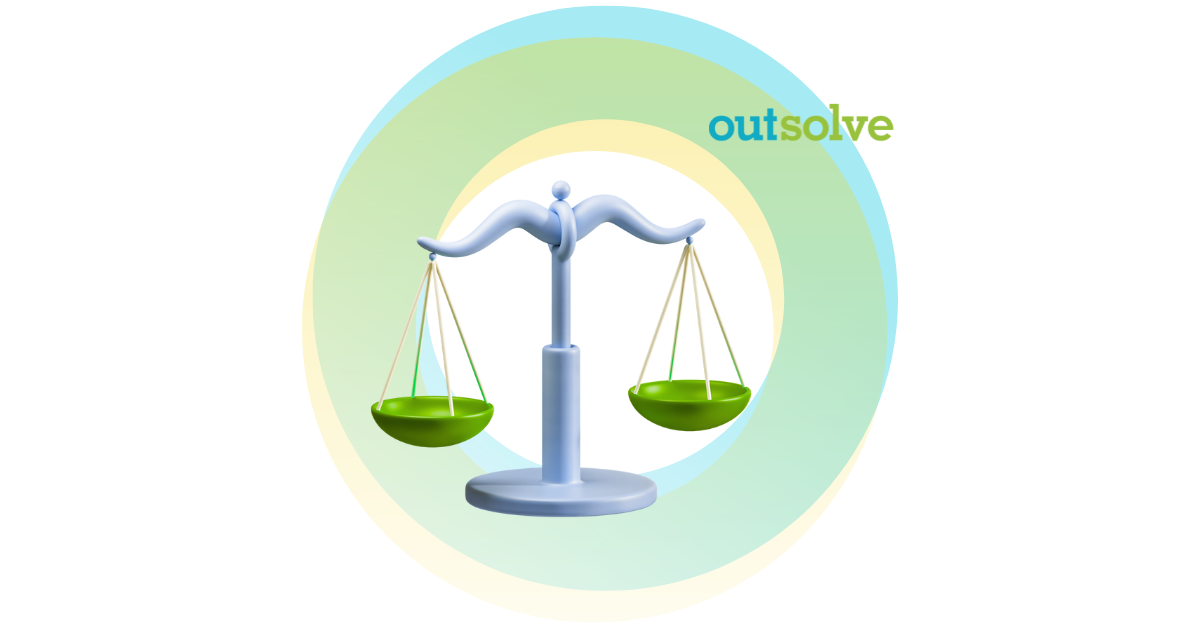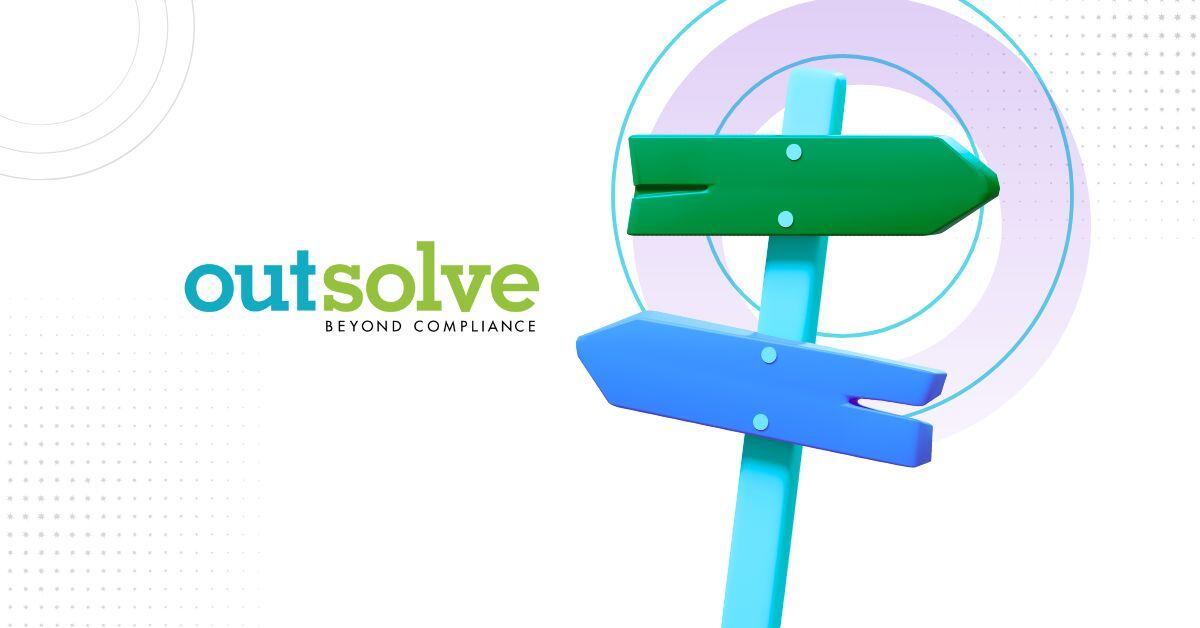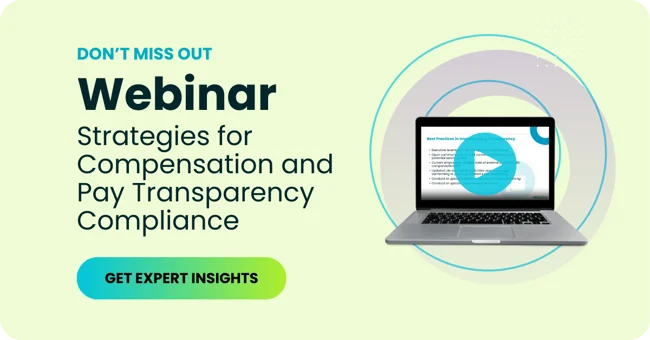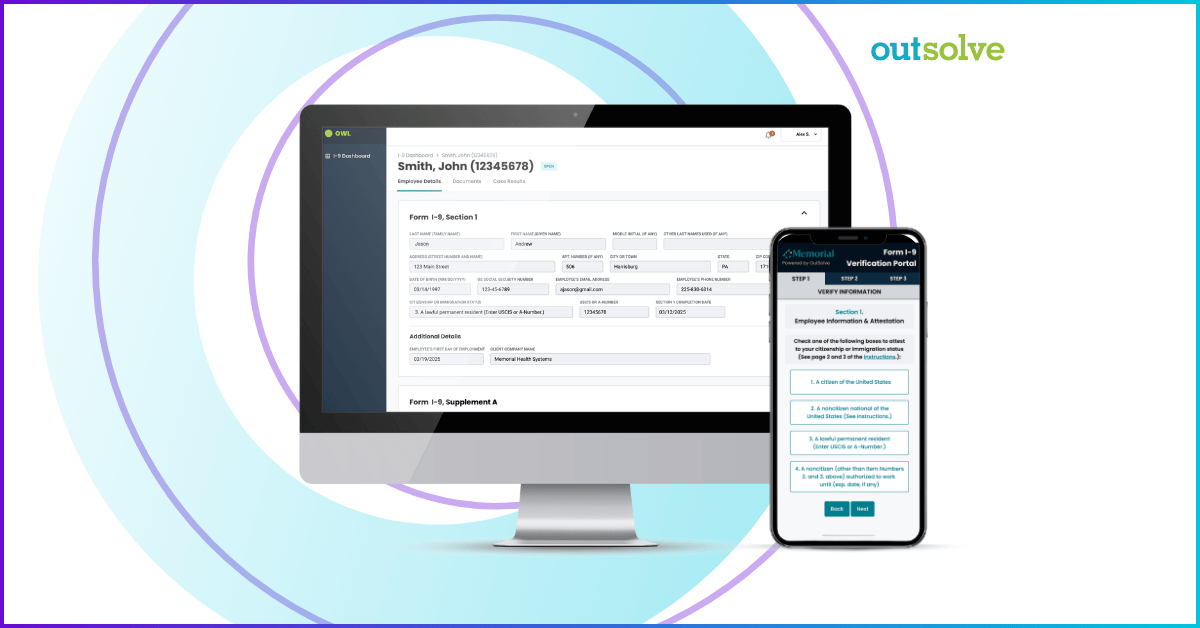 Pay Equity Audits: Why They’re Still Critical
Federal contractors and subcontractors have long been required to conduct annual pay equity reviews under under Executive Order 11246. This process...
Neil Dickinson
Apr 28, 2025 11:06:25 AM
Pay Equity Audits: Why They’re Still Critical
Federal contractors and subcontractors have long been required to conduct annual pay equity reviews under under Executive Order 11246. This process...
Neil Dickinson
Apr 28, 2025 11:06:25 AM
Federal contractors and subcontractors have long been required to conduct annual pay equity reviews under under Executive Order 11246. This process identifies and corrects pay disparities based on race, gender, or ethnicity. Although EO 11246 has been rescinded the value of conducting them still remains as critical as ever.
Neil Dickinson Pay Equity Audits: Why They’re Still Critical How to Ensure Your Pay Practices are Non-Discriminatory
Administering fair compensation practices is not just the right thing to do, it is essential for legal compliance, maintaining a positive workplace...
Neil Dickinson
Apr 2, 2025 3:59:21 PM
How to Ensure Your Pay Practices are Non-Discriminatory
Administering fair compensation practices is not just the right thing to do, it is essential for legal compliance, maintaining a positive workplace...
Neil Dickinson
Apr 2, 2025 3:59:21 PM
Administering fair compensation practices is not just the right thing to do, it is essential for legal compliance, maintaining a positive workplace culture, and for a company’s overall success. Companies that fail to establish non-discriminatory pay practices expose themselves to numerous risks, including legal penalties, lawsuits, and long-term damage to their reputation.
Neil Dickinson How to Ensure Your Pay Practices are Non-Discriminatory 6 Steps to Conduct a Pay Equity Audit
Fair and equitable compensation practices are not just a matter of compliance—they’re necessary for attracting and retaining top talent and for...
Nick Jones
Mar 27, 2025 3:15:00 PM
6 Steps to Conduct a Pay Equity Audit
Fair and equitable compensation practices are not just a matter of compliance—they’re necessary for attracting and retaining top talent and for...
Nick Jones
Mar 27, 2025 3:15:00 PM
Fair and equitable compensation practices are not just a matter of compliance—they’re necessary for attracting and retaining top talent and for cultivating a positive and inclusive work environment. HR understands that compensation is a key area where issues of fairness, transparency, and equality can either make or break a company’s culture and reputation. A pay equity audit is one of the most effective tools in addressing compensation issues, as it seeks to make sure that employees are compensated fairly, regardless of gender, race, or other discriminatory factors. When an audit is conducted, HR can then address and rectify any issues that are found.
Nick Jones 6 Steps to Conduct a Pay Equity Audit What is a Pay Equity Analysis?
Employee compensation plays a major role in employee satisfaction, engagement, and retention. If not managed carefully, compensation can also be a...
Neil Dickinson
Mar 20, 2025 1:29:18 PM
What is a Pay Equity Analysis?
Employee compensation plays a major role in employee satisfaction, engagement, and retention. If not managed carefully, compensation can also be a...
Neil Dickinson
Mar 20, 2025 1:29:18 PM
Employee compensation plays a major role in employee satisfaction, engagement, and retention. If not managed carefully, compensation can also be a source of inequality and frustration. This is where pay equity analysis comes into play. A pay equity analysis is a review of an organization’s compensation practices, focused on identifying and addressing any disparities in pay between employees performing similar work.
Neil Dickinson What is a Pay Equity Analysis? Simple Steps for Implementing Pay Equity and Fair Pay
Standing up a pay equity and fair pay program can feel like navigating a labyrinth of data, policies, and entrenched practices. You face the daunting...
Neil Dickinson
Mar 4, 2025 4:38:24 PM
Simple Steps for Implementing Pay Equity and Fair Pay
Standing up a pay equity and fair pay program can feel like navigating a labyrinth of data, policies, and entrenched practices. You face the daunting...
Neil Dickinson
Mar 4, 2025 4:38:24 PM
Standing up a pay equity and fair pay program can feel like navigating a labyrinth of data, policies, and entrenched practices. You face the daunting task of balancing budget constraints, regulatory compliance, and the urgent need to attract and retain top talent. All the while, you know that unaddressed pay inequities can erode employee trust, fuel turnover, and tarnish your company’s reputation.
Neil Dickinson Simple Steps for Implementing Pay Equity and Fair Pay The Business Case for Pay Equity in 2025
If recent federal changes have you questioning pay equity’s importance, consider this: states are stepping up enforcement, and your employees are...
Neil Dickinson
Feb 11, 2025 9:50:54 AM
The Business Case for Pay Equity in 2025
If recent federal changes have you questioning pay equity’s importance, consider this: states are stepping up enforcement, and your employees are...
Neil Dickinson
Feb 11, 2025 9:50:54 AM
If recent federal changes have you questioning pay equity’s importance, consider this: states are stepping up enforcement, and your employees are watching. In 2025, staying proactive is key.
Not only that, but under the federal Equal Pay Act of 1963 and Title VII of the Civil Rights Act,employers are prohibited from pay discrimination on the basis of sex, gender, race, or ethnicity. These two laws work together and require that any pay differences are justified by legitimate, non-discriminatory factors such as merit, seniority, quantity or quality of work, or a factor other than sex and race.
 New Jersey's Pay Transparency Law Poised for 2025 Rollout
Post Updated: December 17, 2024: New Jersey's Pay Transparency Law Takes Effect June 2025 New Jersey has joined the growing list of states advancing...
Debra Milstein Gardner
Oct 29, 2024 11:15:00 AM
New Jersey's Pay Transparency Law Poised for 2025 Rollout
Post Updated: December 17, 2024: New Jersey's Pay Transparency Law Takes Effect June 2025 New Jersey has joined the growing list of states advancing...
Debra Milstein Gardner
Oct 29, 2024 11:15:00 AM
Post Updated: December 17, 2024:
New Jersey's Pay Transparency Law Takes Effect June 2025
New Jersey has joined the growing list of states advancing pay transparency with Governor Phil Murphy signing Senate Bill 2310 into law effective June 1, 2025. This law will require employers (including consulting firms, job placement, referral, and employment agencies) with at least 10 employees over 20 calendar weeks to disclose salary ranges and general benefits in job postings, whether internal or external.
Debra Milstein Gardner New Jersey's Pay Transparency Law Poised for 2025 Rollout Massachusetts Advances Pay Equity with Groundbreaking Pay Transparency Bill
In a landmark move, the Massachusetts legislature has passed a significant bill promising to bring a new level of transparency to the hiring...
Neil Dickinson
Aug 6, 2024 11:36:35 AM
Massachusetts Advances Pay Equity with Groundbreaking Pay Transparency Bill
In a landmark move, the Massachusetts legislature has passed a significant bill promising to bring a new level of transparency to the hiring...
Neil Dickinson
Aug 6, 2024 11:36:35 AM
In a landmark move, the Massachusetts legislature has passed a significant bill promising to bring a new level of transparency to the hiring process. The bill, known as an Act Relative to Salary Range Transparency, requires employers with 25 or more employees to disclose salary ranges when posting job positions. This legislation is set to make Massachusetts the eleventh state to mandate such pay transparency, a step that many believe will help close the gender and racial wage gap.
We've made it easy for you to navigate what steps to take: skip right to Actions Massachusetts Employers Should Take Now
 What is the Pay Equity Journey?
As an HR leader, embarking on the pay equity journey isn't just a regulatory obligation — it's an opportunity to align your human resources practices...
Neil Dickinson
Jul 11, 2024 12:45:25 PM
What is the Pay Equity Journey?
As an HR leader, embarking on the pay equity journey isn't just a regulatory obligation — it's an opportunity to align your human resources practices...
Neil Dickinson
Jul 11, 2024 12:45:25 PM
As an HR leader, embarking on the pay equity journey isn't just a regulatory obligation — it's an opportunity to align your human resources practices with your organization's deepest values of fairness and transparency. This journey will challenge you to scrutinize and refine your compensation strategies, ensuring that every employee's pay is not only compliant with the law but is also a true reflection of their value and contribution to the company.
Neil Dickinson What is the Pay Equity Journey? Webinar: Laying the Groundwork: Building Pay Equity From the Start
Join OutSolve on Wednesday, July 17 for a live webinar, "Laying the Groundwork: Building Pay Equity from the Start" as experts discuss how to build a...
Mary Madden
Jul 2, 2024 10:45:00 AM
Webinar: Laying the Groundwork: Building Pay Equity From the Start
Join OutSolve on Wednesday, July 17 for a live webinar, "Laying the Groundwork: Building Pay Equity from the Start" as experts discuss how to build a...
Mary Madden
Jul 2, 2024 10:45:00 AM
Join OutSolve on Wednesday, July 17 for a live webinar, "Laying the Groundwork: Building Pay Equity from the Start" as experts discuss how to build a strong foundation for pay equity in the workplace. Attendees will experience an insightful webinar dedicated to establishing a foundation of pay equity within their organization from the start. Our compensation experts will dive into the essentials of pay equity, providing you with actionable strategies and best practices to ensure that your compensation framework is fair and unbiased from the outset.
Mary Madden Webinar: Laying the Groundwork: Building Pay Equity From the StartNeed More Help? Contact OutSolve.
We offer HR compliance, anti-discrimination, and fair pay solutions.



.png)



